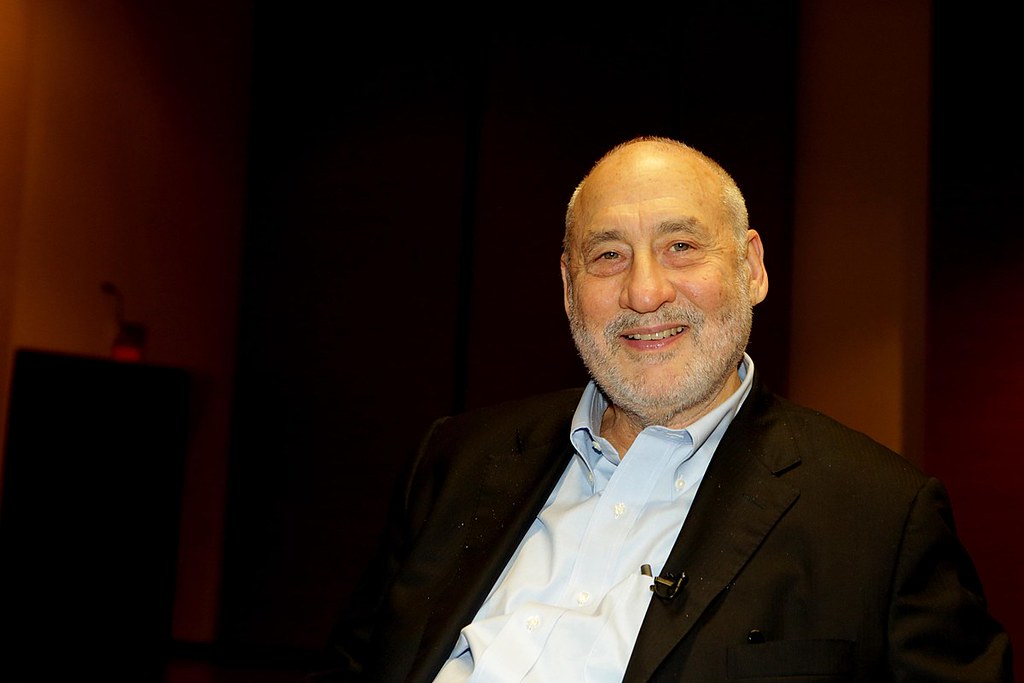The latest bombshell – Suisse Secrets – reported by a number of international outlets is a continuation of the pathbreaking work of the Panama Papers and the Paradise Papers. In one sense, it’s the same old, same old story over and over again.

Joseph Stiglitz (Source:wikimedia)
Every time journalists lift the curtain of secrecy behind what’s going on in the financial sector, we understand better why secrecy is so important: a web of corruption and nefarious activities, not surprisingly disproportionately from shady customers and families of dictators, with a smattering of seemingly respectable politicians in democracies caught in the net.
But this time, there’s something different. This time it’s not a small, obscure off-shore island, or a struggling developing country trying to figure out an alternative business model to drugs. It’s a major bank in the middle of Europe, indeed, in one of the most prosperous countries in the world, a country where the “rule of law” is supposed to reign supreme. Even more disappointing, given that the country and bank involved have made promises of transparency and doing better—after a long history in which facilitating tax evasion seemed the least of the problems. And that’s the point: without more transparency, there can’t be accountability.
In fact, Switzerland’s position increasingly appears two-faced, with a legal framework which penalizes those who attempt to pierce its secrecy. Countries around the world have passed whistle blower laws, recognizing how hard it is to uncover untoward behavior. Frances Hagen’s exposure of Facebook’s misdeeds probably wouldn’t have been possible without America’s strong whistleblower laws. But Switzerland, one of the oldest democracies in the world, seems to have doubled down on its commitment to secrecy, regardless of the incentives it provides for bad behavior, threatening journalists and others who might get access to the data that shows what is going on in the dark shadows of its financial system. Regrettably, but not surprisingly, no Swiss outlet was able to join the global journalism collaboration due to the danger of severe legal consequences under its banking secrecy laws. But journalists in other countries should be given kudos too, for risking the possibility of Swiss authorities’ prosecution. Surely, Switzerland must know the chilling effect of its legislation: almost surely, that was the intent, to preserve its business models as long as possible, of taking a little slice of the ill-gotten gains of others, in return for providing a safe and secret place to hoard and store the geld.
In the Suisse Secrets we find two alarming aspects. The international journalistic collaboration only saw a small portion of the banks client data, but if in this tiny portion are already so many problematic customers, dictators and their families, war criminals, intelligence officials and chiefs, corrupt managers, human traffickers, heads of state, sanctioned businessmen and human rights abusers – a true rogue’s gallery--what would we see if the window into the bank were larger?
Secondly, it appears that the countries who suffer the most from the bank’s assistance to bad actors are the developing countries and emerging markets. The revelation confirms what expert have warned off for a long time: Switzerland agreed to an automatic information exchange mostly with other advanced countries, but not with the poor countries, and especially those which might be the home to these illicit activities. Kleptocracy and corruption can thereby still flourish.
It’s good to see that journalists believe in their duty to report, and that they fight for “the right to know” of the citizens in these countries, who can’t control what their politicians hide in Switzerland. Politicians in the advanced countries are fond of making speeches condemning corruption elsewhere. But it is countries like Switzerland that are the key enablers: that provide the safe haven, ensuring the long term returns. We should be clear: Switzerland is not alone. It rightly complains that closing the door there will simply shift the activities to real estate and finance in Miami, London, or other money-laundering centers. Still, there is something morally repugnant for those in US, UK, or Switzerland living off spoils stolen from those so much poorer. And those countries like Switzerland who’ve designed a legal code which makes this system flourish should be especially embarrassed.
How many stories, how many revelations, how many exposes, will it take for Switzerland, the US, UK and other countries to change their laws on secrecy in banking and real estate, and all the other activities that facilitate money-laundering and promote crime and corruption? While this treasure trove showed Switzerland benefiting from a flow of money from poor countries, the system itself is corrupting: the rot of tainted money spoils all that it come in touch with. We’ve seen that so forcefully in the United States, where the Commander in Chief was also the money-launderer in chief, and has put the country’s democracy in jeopardy.
Hopefully, the Suisse Secrets this enormous achievement of honest and honorable journalism will put to shame those who have resisted creating a more transparent financial and economic system.

Since 2007, Prachatai English has been covering underreported issues in Thailand, especially about democratization and human rights, despite the risk and pressure from the law and the authorities. However, with only 2 full-time reporters and increasing annual operating costs, keeping our work going is a challenge. Your support will ensure we stay a professional media source and be able to expand our team to meet the challenges and deliver timely and in-depth reporting.
• Simple steps to support Prachatai English
1. Bank transfer to account “โครงการหนังสือพิมพ์อินเทอร์เน็ต ประชาไท” or “Prachatai Online Newspaper” 091-0-21689-4, Krungthai Bank
2. Or, Transfer money via Paypal, to e-mail address: [email protected], please leave a comment on the transaction as “For Prachatai English”
